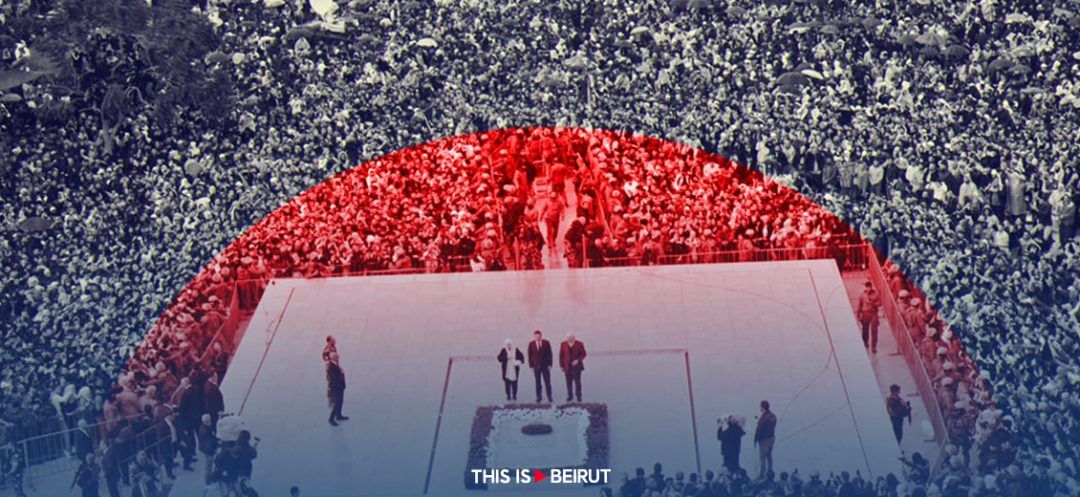
Surrounding the El-Amine Mosque built by his father, Rafic Hariri, a significant crowd reserved a true moment of celebration for the political heir on February 14.
We would have hoped to see a broader smile on Saad Hariri's face, considering the exuberance of the crowd. However, the man remained tense, wearing a strained half-smile. Undoubtedly, he found himself confronted with a popularity he had yet to figure out how to handle. “Come back!” the crowd shouted. “Everything in its own time,” he replied laconically.
“Show them that you are worthy, that the country cannot function without you,” he added bitterly to the crowd, without specifying to whom these “sheep without a shepherd” must prove their existence and worth.
From the front porch of his home, amidst the cheers drowning his voice, Saad Hariri remained equally vague, emphasizing that his father was assassinated for embodying “a symbol of moderation,” an unpunished crime for which the International Tribunal for Lebanon convicted three Hezbollah members in 2020.
In private, his visitors attest that this wound remains a gaping one. “They will eventually pay for their crime. They have already started to pay,” he later confided to a media outlet, without identifying the party he was referring to.
The scene reveals what Lebanon is: a fragmented nation with a blocked memory, where truth is only partially voiced by a populace passively subjected to the hegemony of a single formation, Hezbollah, in the name of national unity and civil peace.
In fact, we are still bearing the high cost of the suffering we have caused one another without anyone having sought forgiveness from the other, except for mere lip service.
The atrocities we condemn elsewhere have their counterparts here, yet we find it convenient to bury their memory. We even passed an amnesty law (August 26, 1991) that exempted those responsible for crimes committed during the war, including forced disappearances, from facing penal justice. All former militias are aware of the deep scars their actions have left on the social fabric. When questioned by a journalist on a local channel recently, Assaad Chaftari, a repentant former member of the Lebanese Forces (LF), openly answered affirmatively. “Yes, in a way, I can be considered a war criminal,” he said.
And when our memory is not blocked by our own falsity, in the name of “a way out of the crisis,” which isn’t but a “headlong rush,” it is often obstructed by the political will of a camp refusing justice, as seen in the investigation into the ammonium nitrate explosion at Beirut's port on August 4, 2020.
These “memory gaps” and the absence of “reparative justice” impede Lebanon's natural political evolution, obstructing the transition from fragmented communities to a unified nation. These elements further fuel our discomfort as we witness Lebanon's struggles with self-governance, its inability to shape its own history, and its failure to document it.
Given this, it's hardly surprising to hear some Christians assert that their Lebanon is superior to that of their neighbors. Who is to blame for this?
The Maronite Patriarch felt compelled to assert during Sunday’s homily, marking the beginning of the Great Lent, that, taking advantage of the presidential vacancy, certain administrative positions are being “taken away” from Christians and given to other communities.
Yet, the head of the Maronite Church, the moral, physical, and mystical person responsible for the foundation of the Lebanese State in 1920, acknowledges the limited impact of his past efforts. Last year, he initiated a call to all 64 Christian MPs for a “spiritual day of fasting and prayer” on April 5, 2023, urging them to heed their “conscience” in order to open the channels… of dialogue.
The Christians of Lebanon must realize that their diminished role is a consequence of their internal conflicts. They should also always remember that their “role” is infinitely more significant than the few positions they fear losing. For instance, Christian schools play a crucial role in educating approximately one-third of the Lebanese youth. They play a vital role in facilitating a transfer of skills and fostering a fair balance between reason and faith among all communities in Lebanon. So, should we blame them for admitting Muslim students? Furthermore, given the human hemorrhage of recent years, is it feasible to populate classrooms with the remaining Christian students in Lebanon?
The October 2019 crisis has been diagnosed as an ethical, if not moral, crisis by most observers. Infested with corruption, Lebanon erupted in protest when the government sought tax-free communication services to replenish a treasury that had been plundered. What has changed?
Read more



Comments